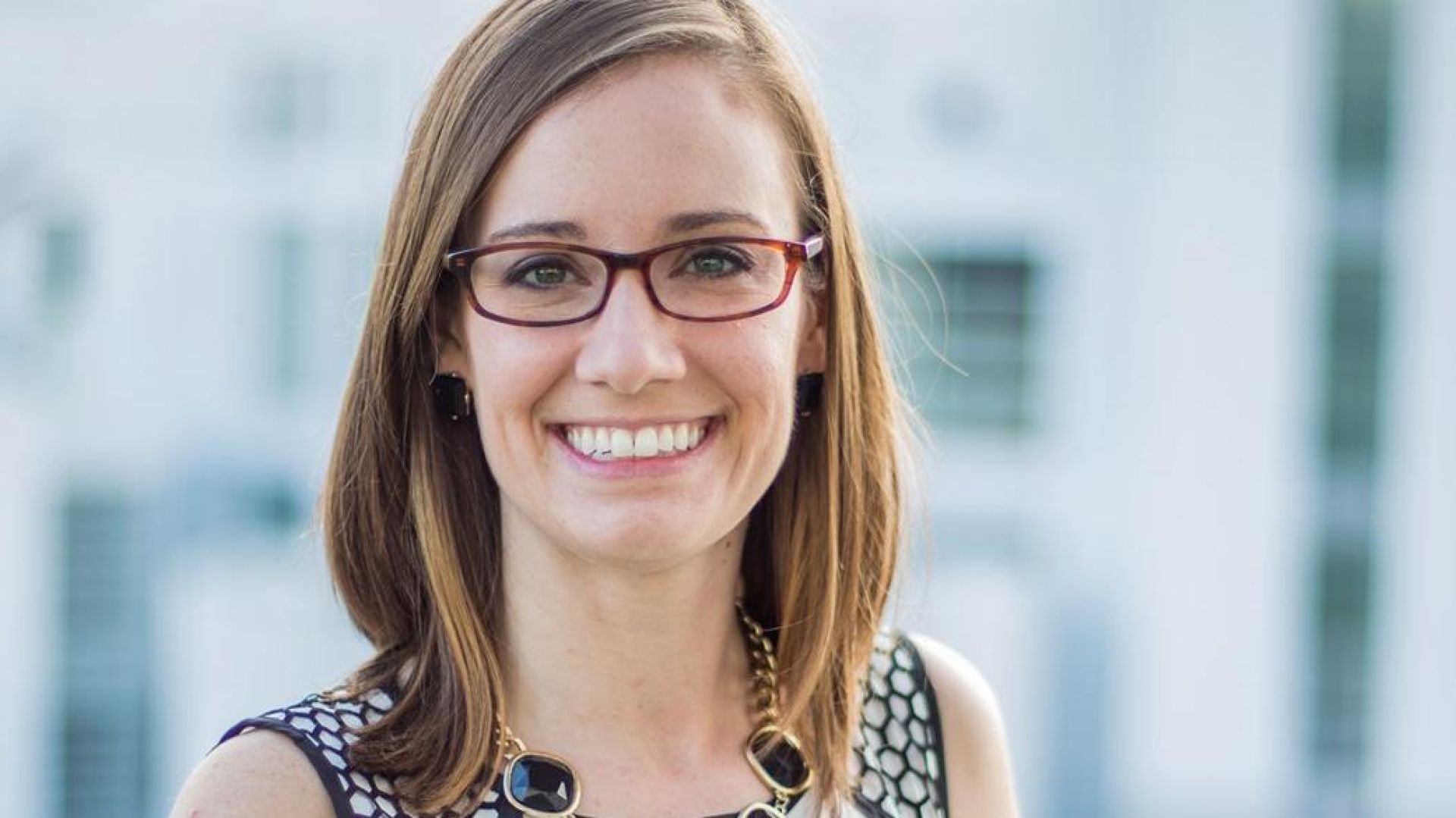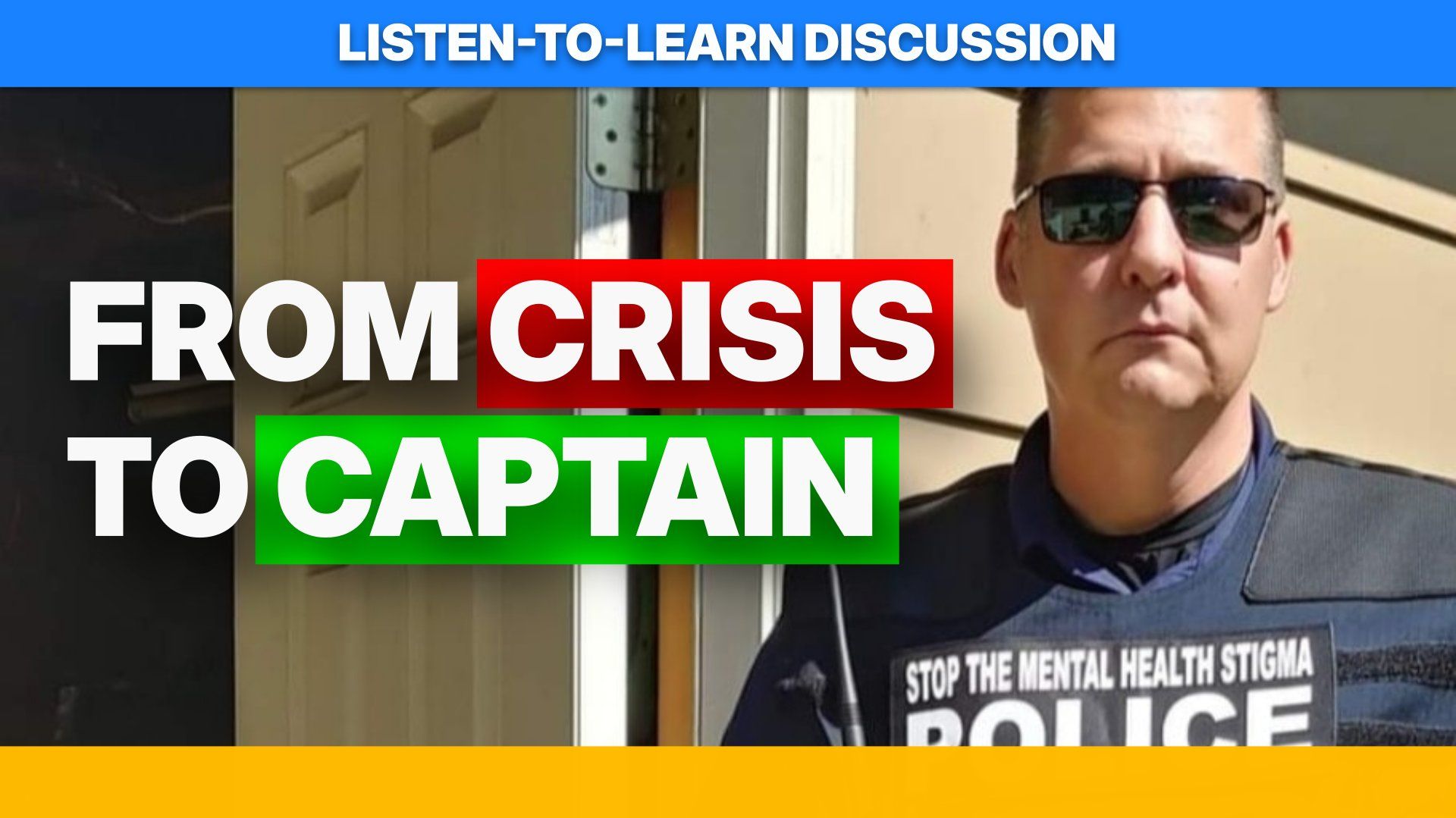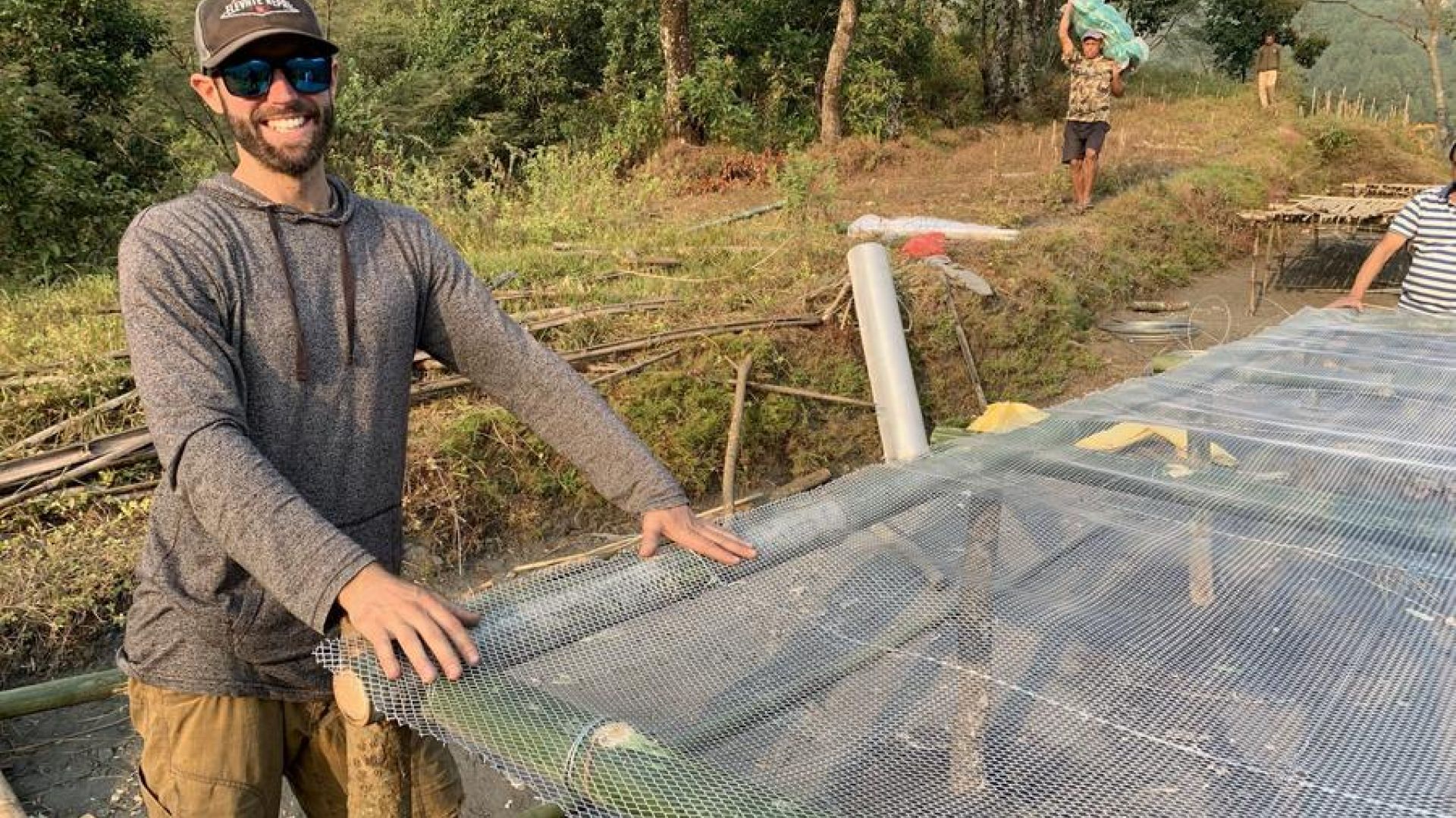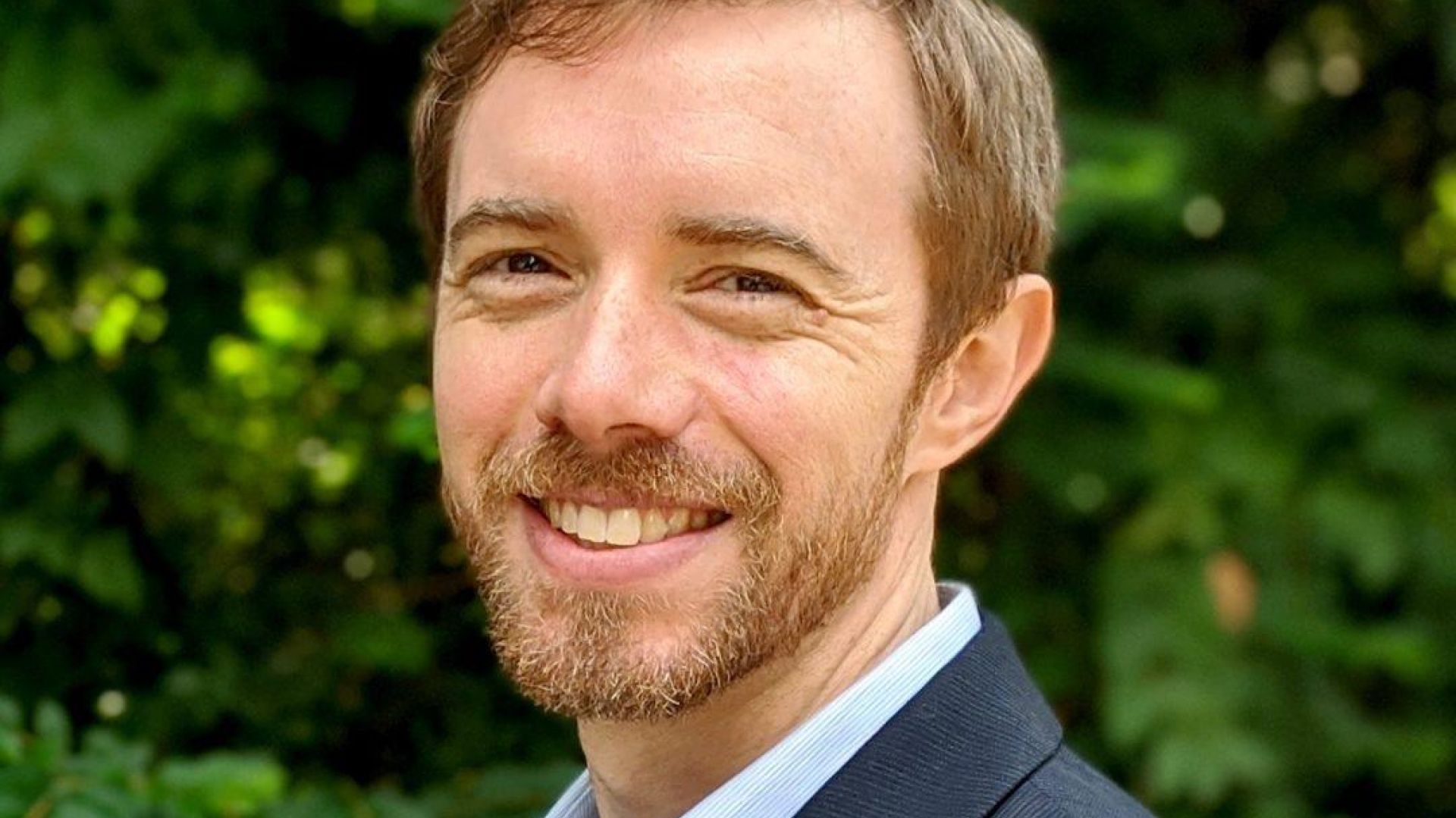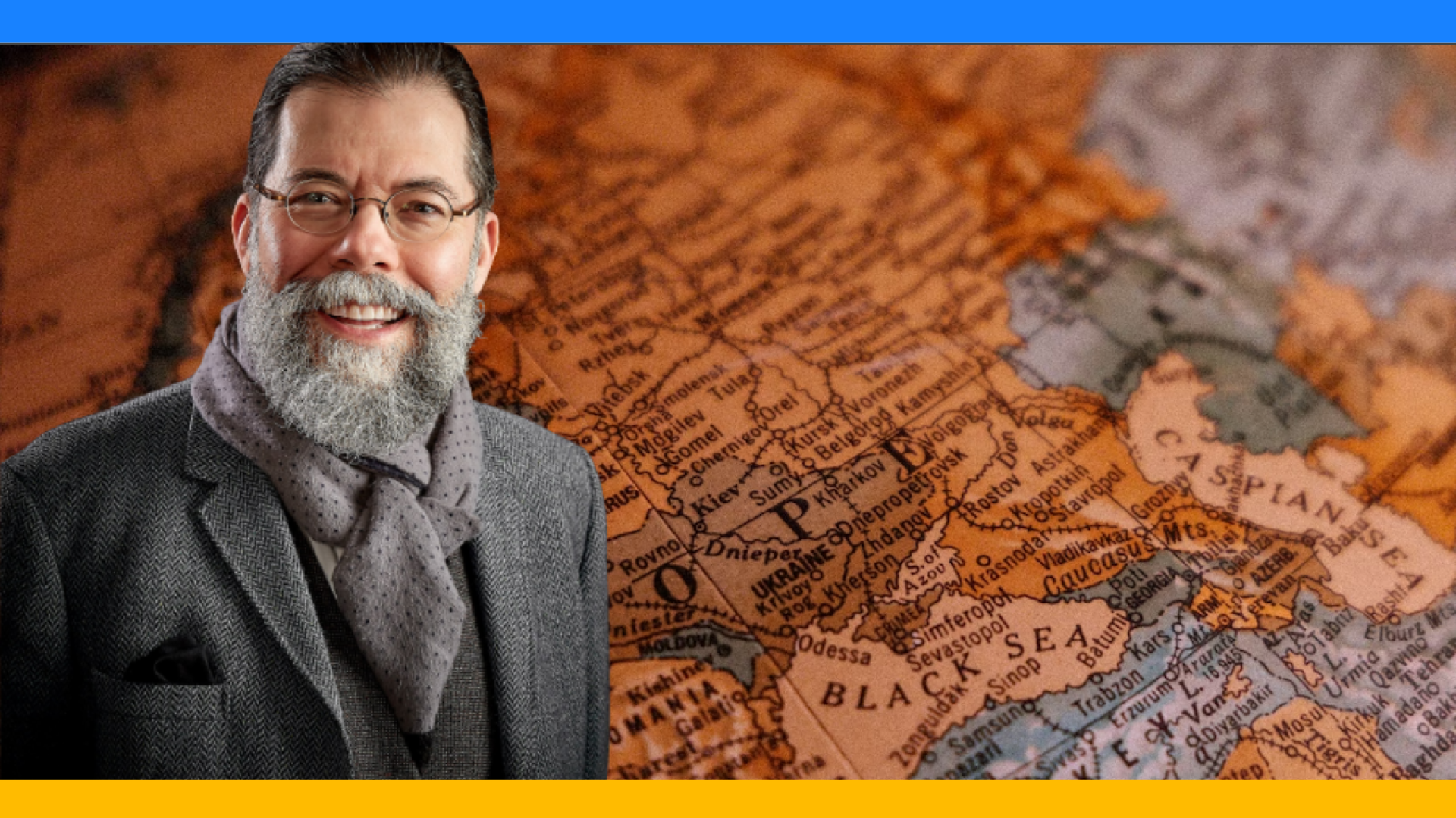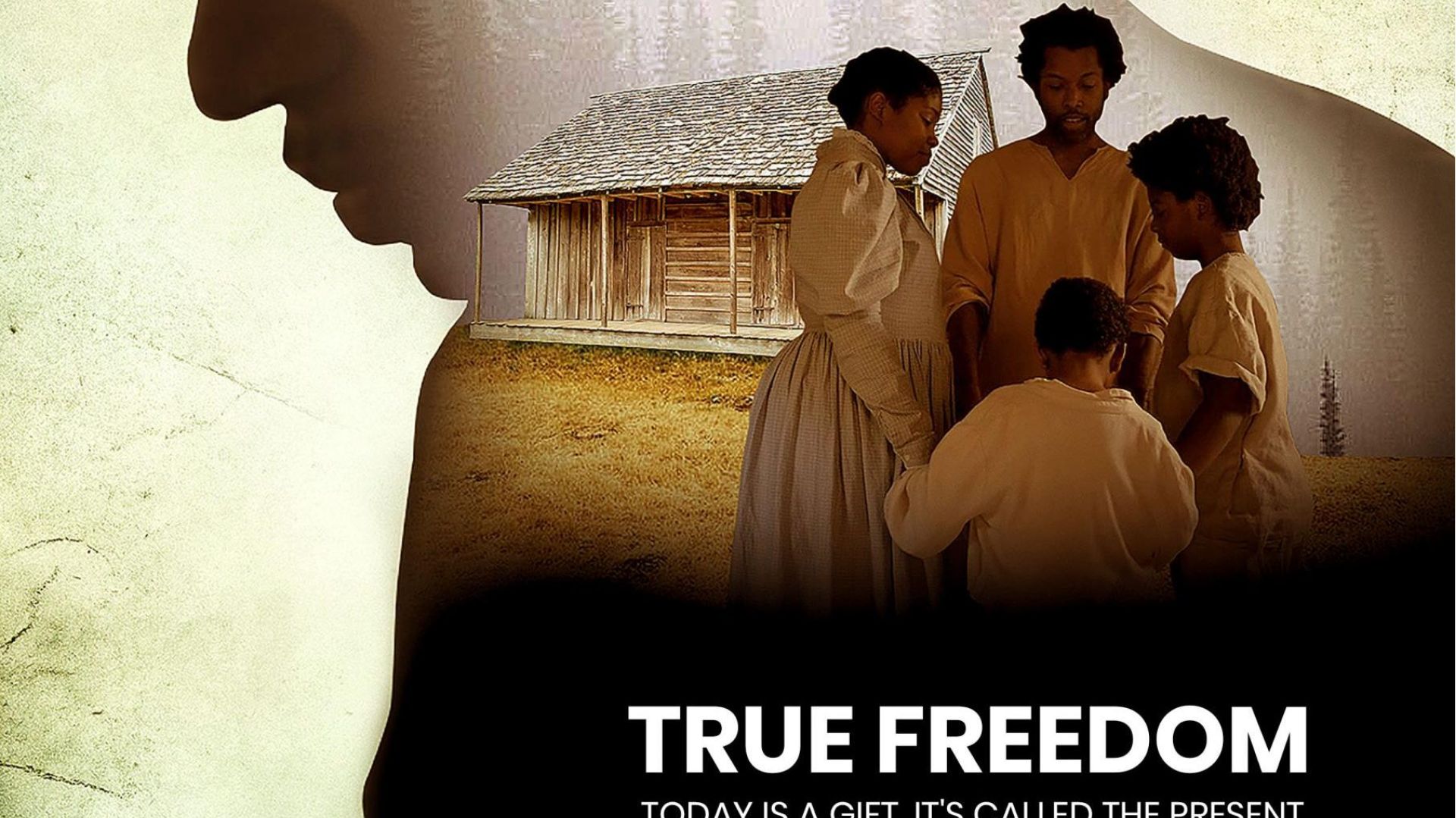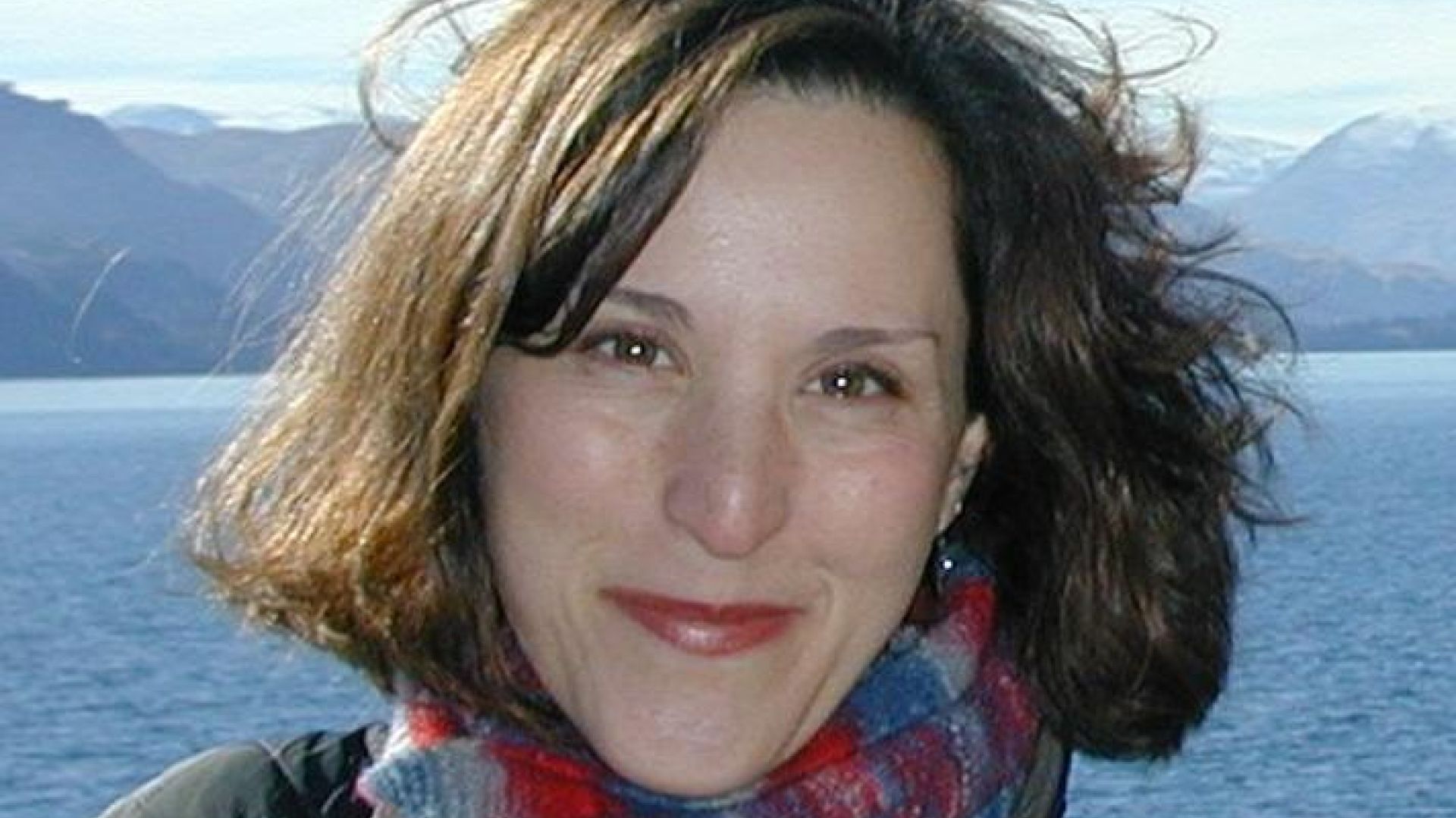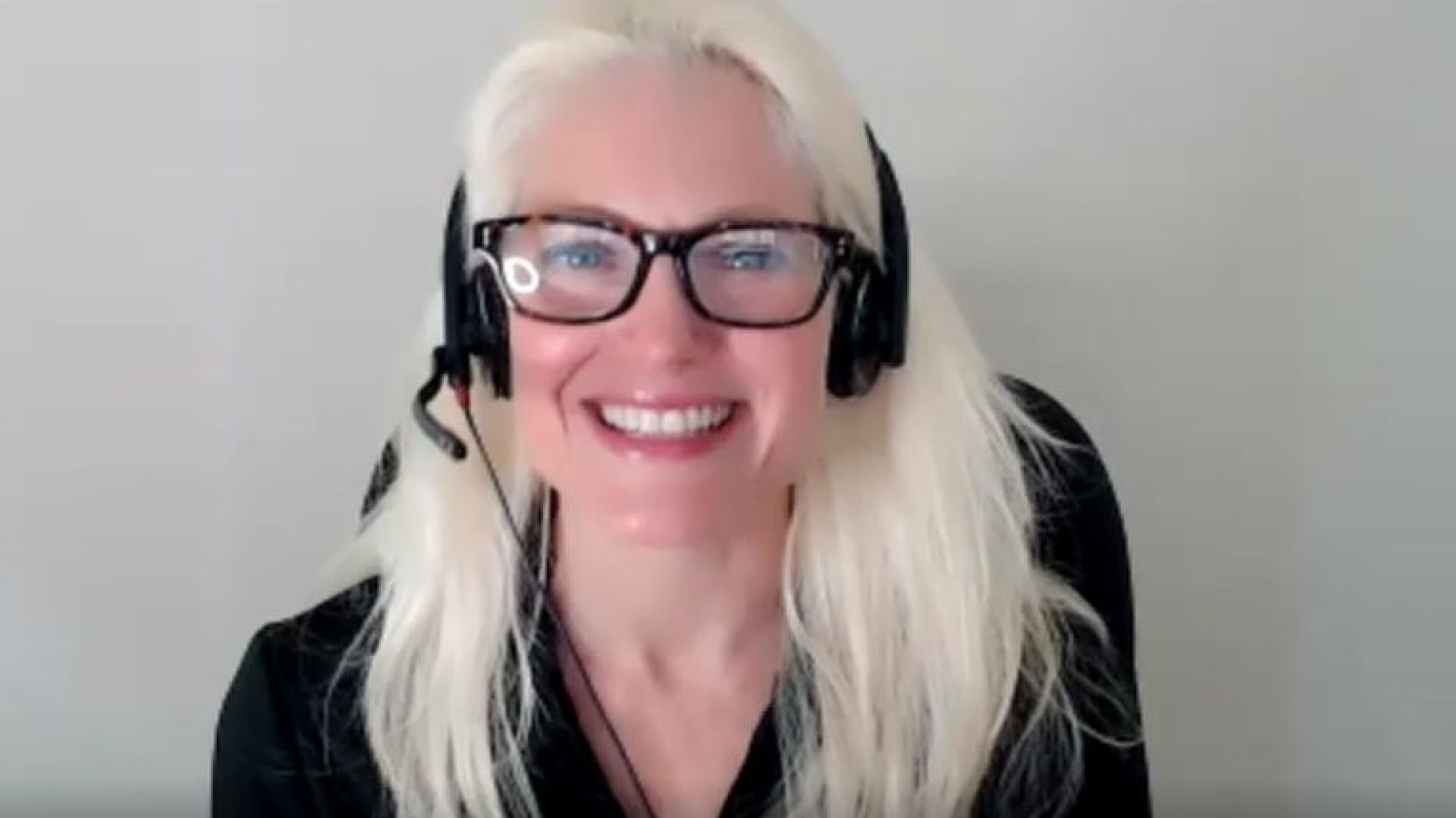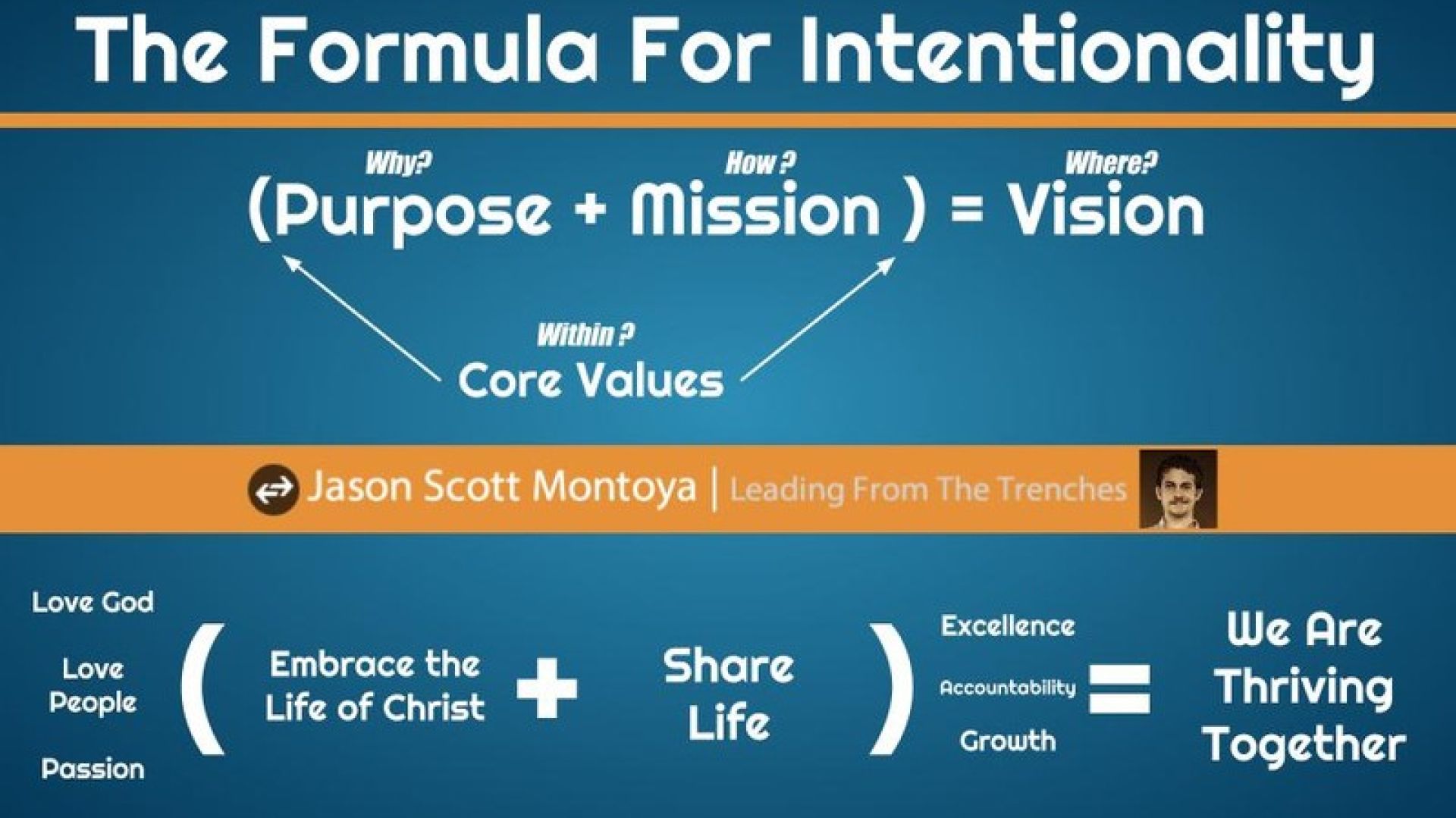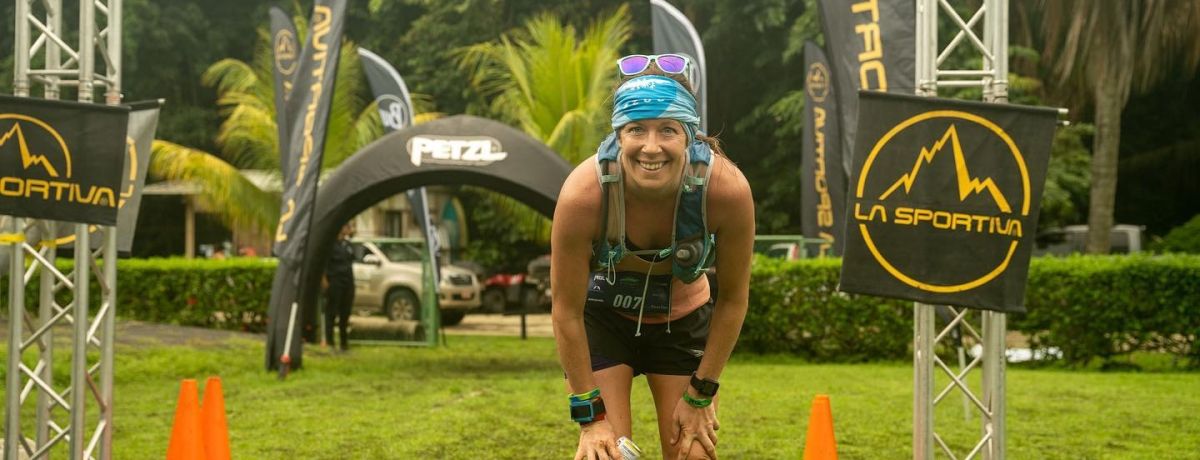
If You Feel Stuck at a Crossroads in Life, Watch This | Maria Joyner
What if the things you believe are your greatest strengths are sabotaging your happiness?
You think your drive to always be on, to chase the next thing, is what makes you successful. You pride yourself on being a "hyper-achiever."

But you’re sitting down to watch a sunset and your mind is 100 miles away, worrying about emails, dinner, and laundry. You have your hand on a hot stove, but you’ve had it there for so long you just think it's normal.
It’s a common story. We get to a point in our late 30s to early 60s and wonder, "How did I end up here, and what am I doing?" We try to fix it with external things—a sabbatical, a big move—only to find ourselves dealing with the same internal battles just a few months later.
This conversation on the Share Life podcast flips the script on how to create change. It’s not about another pill or a bigger goal. It’s about realizing:
- The so-called "superpowers" that are your saboteurs.
- Why just changing your environment (like moving to a tropical paradise) won't fix what's going on inside.
- The single most powerful—and simple—thing you can do to start making a real internal shift. It takes just 60 seconds.
We forget that at any point, we can just stop the car and turn around. But how do you find a new map when you’ve been living somebody else’s life for 40 years?
Find out how to finally pause and recalibrate by watching this listen to learn episode of the podcast.
P.S. If you feel like you’re struggling in silence, you’re not alone. This is a shared life experience, and understanding it is the first step to breaking free.
- Watch: Click here to watch this discussion on YouTube directly, or click play on the embedded video above to begin streaming the interview. Click here to subscribe to my YouTube channel.
- Listen: Click here to listen on Spotify directly, or click play below to immediately begin streaming. You can also find this discussion on Pocket Casts, iTunes, Spotify, and wherever you listen to podcasts under the name Share Life: Systems and Stories to Live Better & Work Smarter or Jason Scott Montoya.
Connect With Maria Joyner
- Connect with Maria >>> LinkedIn | Instagram
- Quantum Leap Experience >>> Website | YouTube | Linkedin | Instagram | Facebook
- Permission to Pause Workshop >> Website
- Previous Podcast Episode: Big Life Changes
Podcast Episode Transcript
Maria Joyner (00:00) We forget we can stop the car and turn around. We forget that if we realize we've gotten off track, find a new map, or see another route, we can change direction. The first thing is being willing to say, "I need to stop and turn around." Jason Montoya (00:50) Welcome to a Listen to Learn episode of the Share Life podcast. I'm Jason Scott Montoya, and today I'm speaking with Maria Joyner. Maria, say hello. Maria Joyner (00:58) Hello. Jason Montoya (00:59) This is Maria's second time on the podcast, so if you want to dive deeper into her story and her move from the US to Costa Rica, you can check out that past episode. We'll talk a little about that but will dive into more specifics on the type of experience she's now offering to others who want that type of life transformation. Maria is a fractional chief revenue officer and the founder of Quantum Leap Women's Experience, which helps women create lasting change and self-mastery. In this episode, we're going to explore the big life transition, what leads to a midlife existential crisis, and how to navigate and overcome it. Maria, you talk to people who are feeling stuck, burned out, or at a major crossroads, and this comes from facing that same type of crossroads in your own journey. Can you talk to us about that moment, the state you were in, what it felt like, and what someone who is in that place right now might be feeling? Maria Joyner (02:04) Yeah, sure. Jason, thanks for having me on today. I'm looking forward to our conversation. I think a lot of times when we're in this state of burnout and exhaustion, we may not even realize it. Mentally, we may not be fully aware that it's happening. For me, I thought it was my normal operating system. I thought it was normal to be high-stressed and always be thinking about the next thing. Even if I was sitting down watching the sunset, I'd be worrying about what we were cooking for dinner, tomorrow, emails, and the laundry. I thought that operating system was helping me, driving me to do better or achieve more. My change came from taking an online course called Positive Intelligence. It helped me realize that all of these things I was saying to myself, which I thought were motivators, were really sabotaging my happiness in the present moment. Instead of being at sunset with my family, I was a hundred miles away worrying about everything else. For people who are feeling burnt out, who feel like they don't have other options, or they know it's time for change but don't know where to start, a lot of it is just deciding to find a way to make that change. It's not about making big changes, but starting with something really small. The first step is recognizing it. If you touch a hot stove and burn your hand, you recognize that you've touched the hot stove. For me, that was the first step to realizing it was time to make internal changes. Jason Montoya (04:10) Let's dive deeper there. You're describing having your hand on a hot stove and thinking it was normal. Where did that come from? Is it something you inherited from your parents or the life you lived? Did it come from facing dynamics of life you hadn't been prepared for? Maria Joyner (04:38) Three what I now call saboteurs that are very prominent in me are the hyper-achiever, restless, and hyper-rational. By the time somebody has finished their sentence, I've already analyzed every possible outcome. These can be superpowers or saboteurs, and for me, they all came from my childhood. My parents wanted to make sure I excelled, was at the top of the class, did well in school sports, and got into a good college. A lot of these stories of doing more started as a child: Is an A good enough, or should it be a perfect 100? Or should I have gotten extra credit for a 102? My parents, doing the best they knew how, passed on to me all the things they had been told were important for a child to achieve. I carried those for 40 years. Jason Montoya (05:56) It's interesting. There's a movie called Inside Out 2. Have you seen it? Maria Joyner (06:02) My son loves those movies. Jason Montoya (06:03) The character of Anxiety is spot on to what you're describing; Anxiety just takes over everything, foreseeing the future. I thought it was well done and relatable to how it can take over. It's a protective mechanism, right, to protect us from these potential outcomes. I think one of the things I'm hearing from you is this idea that as we grow up, we download this operating system on how to live. We're kind of living somebody else's life—our parents', the community's—some of which we're doing just because that's all we know. Then we hit a point where we wonder, "What am I doing? Why am I doing this?" Talk about that feeling and that type of revelation. Maria Joyner (07:04) I think that's the point where a lot of women start reaching later in their careers, in this age of late 30s to early 60s, kind of asking, "How did I end up here and what am I doing?" When we start asking those questions, they're scary because the answers could start to shatter this framework that we've held on to for our whole lives. When I got to that point and looked around, one of the stories that comes to mind is that in my whole career, I have historically been excellent at working with the most difficult founders that nobody else wanted to work with. For clients, I prided myself on my ability to work with the founders that everyone else said, "Screw it, they're too hard to work with." About a year ago, I was reflecting and was like, "Yes, I can do it, but why do I do it?" Just because I can, why do I do it? I'm choosing to take a very challenging path. It started really putting into perspective retraining the story that I've told myself about the people that I go after and work with. Work makes up a big part of what we do every day, and even if they're difficult, enjoying that, or maybe shifting to more passion-based work, are all things that started to arise out of just the contemplative thinking of, "I have always done this, but why should I keep doing it?" Jason Montoya (09:27) I think there's two angles to that. One is the question of, "Why am I doing this?" This can happen in an organization where they're just doing what they've always done and not understanding the reason behind it. That can perpetuate things that should have stopped, or you could stop something you shouldn't because you don't see its value. But I think the other part of it is, "I'm hitting reality and it hurts. My relationship is a disaster, my business is falling apart, my kids won't listen to me." Things are a mess. "I thought if I did all the things I was told to do, none of these things would have happened, yet they are." There's a second layer that has to do with the disillusionment that the way of doing things is actually making things worse. What would you say about that? Maria Joyner (10:22) A lot of the things we've chosen to do, we've done because of the framework we were taught and developed at a young age and then continuously reinforced in our careers. I think those are some really intimidating questions to start asking because if I choose not to do it this way, we have these external family pressures. For example, when I was considering a big life change, like moving to Costa Rica, the initial pressures from the family were like, "Maria's lost her mind." That's really common feedback when anybody's thinking about life changes. It doesn't have to be moving to another country. It can be, "I think I want to leave my job." We have external societal pressures. If I make this big change from going from corporate to starting my business, maybe my kid can't keep doing piano, or maybe we can't be on varsity. But I think the biggest pressure comes from inside of us. It's this torture we put ourselves through because we typically think of the worst-case scenario. As an adult, it's like, "I'm going to lose everything I've built and end up on the side of the road with nothing." Our brains just tend to go to this awful place. So between family, society, and our own minds, it makes it really hard to have any productive, contemplative thoughts about what would happen if, or what this would look like. It kind of gets shut down really fast. Jason Montoya (12:41) The thing you're illuminating is the object of your approval. As a kid, it's the parent. You could have other groups, like a religious or political group. If you start to break with those people, your identity gets challenged and threatened. It can be scary because you feel like something's off, so you don't want to break that approval, but at the same time, the way you're doing it isn't working. So there's a tension there. What do you think of that? Maria Joyner (13:33) Identity is a really scary thing to lose. We typically build our identity around what we do for a living, where we live, and the social or religious groups we're a part of. That's how our identity is defined for most of our life. That's a really challenging internal battle to understand: "Who am I without this identity? And does this identity define me?" That can be one of our biggest challenges. I went through that when I moved to Costa Rica. I got out of a nine-year relationship. I was no longer in Tech Square in downtown Atlanta, defined by all the startup events and different things I did in the community. And then it's just really, "Who am I?" Not having that answer readily available is very intimidating. Giving ourselves the time to think through what is next versus already having it figured out is not something that our brains want to give us. And it's certainly not something society wants to hear: "I'm figuring it out right now." Jason Montoya (14:56) There’s another dynamic that also makes it challenging: when you change how you operate, it is disruptive to other people's identities. If they don't want to change, they will try and hold you back. They'll call you crazy or say there's something wrong with you. Often they're doing those things to try to get you to come back and not change. Has that been your experience as well, personally and with others? Maria Joyner (15:38) I've been really fortunate in the sense that although my parents thought moving to Costa Rica was a crazy decision, they've genuinely supported me throughout the past 10-15 years. And I have a spouse that when I come up with these crazy ideas, like running 200 miles in August, he just supports me and doesn't try to talk me out of it. I have had to intentionally place people around me. Sometimes you can't place your family intentionally, but I've been really intentional about who I speak to and who I share things with. One of the biggest things I learned when I was looking at becoming an expat was to not ask people their opinion of something. I just don't say, "Hey, what do you think about me doing this?" because at the end of the day, anybody you ask, no matter how close they are, will give you a response through their life experiences and their perspective. Nobody knows what's better for you than you. A lot of the times when we're looking for external answers, what we really need to do is sit down in silence or do something that is the opposite of asking somebody else for advice and find a way to go within. I think that is the most important thing to finding a way to make any sort of life change: pausing and giving ourselves permission to pause. My brain doesn't stop. Your brain doesn't have to stop. You can just sit there in silence and let the brain and all the thoughts do their thing. The smallest points of change come from giving ourselves permission to take a pause. Jason Montoya (17:48) I want to dive into this idea of external versus internal. You went to this tropical paradise, but you were still restless and hyper-achieving. The problems you were facing weren't fixed by just changing the external factors. When you're in this restlessness, this burnout, this "something's wrong" moment, it's very easy to try and fix it with external things. In Hollywood, we think of buying the sports car and finding some new relationship, things that don't fix it and often make it worse. What are your thoughts on that relationship between the external and the internal? Why do we lean towards the external to try and fix what's inside of us? Maria Joyner (18:54) Because it's easier. But I do think this is a very common shared experience. It's shared as someone who was driven their whole career, finally reached the place they always wanted to be, and they feel unfulfilled. For me, it was moving to Costa Rica, this tropical paradise, and when I got here, I was still a workaholic. It's a very common experience of "if I do these things, then this is the outcome," which again comes from the framework we were taught at a young age. This also happens to many people who take a six-month sabbatical. They come back and three months later, they're dealing with the exact same internal battles, stresses, and frustrations, and they're on the verge of burnout again. It's easier to look for these external solutions and a lot harder to focus on the internal. The internal is scary. It's easier to go out and buy a sports car than it is to sit in silence with oneself for an hour. It's human nature; we don't want to sit alone with our thoughts. We want to try to fix it with other things. Then you look at society. I was back in the States a couple of months ago and it was incredible to me how laden TV is with pharmaceuticals. There was a pill to help you quit drinking, a pill to help you lose weight, a pill to go to bed, a pill to wake up. It's just an external pill. It's this story being perpetuated: just take a pill. It's very much like, "This is how you fix your problem, by doing something external." Jason Montoya (21:21) It's interesting you made the comment about being silent. Blaise Pascal has the quote, "All of humanity's problems stem from man's inability to sit quietly in a room." Talk about silence. Maria Joyner (21:38) Sure. What I generally challenge women to do is just put on a timer for one minute, 60 seconds. Particularly if I'm feeling really overwhelmed and have a lot going on and don't know where to start, I'll just put on a timer for one minute, close everything, and just sit here. Maybe I'm not trying to clear my mind. The thoughts can just go, and I try not to get carried away with a thought. Maybe I just sit here in silence and acknowledge, "Yeah, there's a thought, there's a thought," and try not to think the thought, just see it and be aware of it. That's generally where I recommend people start. There's this idea when people hear the word meditation: "I can't turn my brain off." But who said you have to turn your brain off when you meditate? We have different names for it: prayer, where you ask and then you listen; meditation, where you're just sitting in silence. Or don't label it. Just set a timer for a minute and sit there. Sometimes the labels keep us from exploring that. When I started doing this a couple of years ago, I remember setting the timer for a couple of minutes, remembering something, and getting up to go do it. We have to fight against that urge. Jason Montoya (23:44) When you have this internal dynamic at play, this unsettled feeling, and then you have the external dynamic, it creates a tension. Often, we try to alleviate the tension by changing the external thing, but then we end up in the new situation and the tension is still there. I think the better thing is to actually let the tension we're feeling be a transformative agent, to allow it to actually change something in us. It's like a leverage point. We can shield ourselves from that tension, but then we miss the opportunity for growth. What are your thoughts on that? Maria Joyner (24:41) I think of the tension like gym weights. We go to the gym and pick up a two-pound weight, and that's easy. That's a tension that's like, "Man, I really want some ice cream, but I said I wasn't going to eat ice cream." But then we come home and see our spouse did that thing that always drives us crazy. That's like a 50-pound weight. That tension is much heavier. We can't expect to be able to pick up that 50-pound weight if we're only working with two-pound weights. So leaning into that tension is like my opportunity to work on the weights. First is recognizing your hand is touching that hot stove. "Okay, there's the tension. I'm aware that it exists." Now that I'm aware of it, maybe I start noticing what happens in my body. "Ooh, I just noticed I'm breathing a little bit lighter. I'm feeling a little irritated. Maybe I'm getting a little warm." Now that I can first recognize the tension and then observe its effect on me, I've already sat through enough of it to maybe get a little bit stronger the next time I feel that. This idea of being comfortable in discomfort and understanding how to process it is important because discomfort is the change agent. There's no comfort in change. Becoming comfortable with the discomfort and being able to recognize the tension really is the first step. Jason Montoya (26:44) So there's the awareness of these feelings and the thoughts going through our head. I think it's important with emotion to be aware of it and then to learn a language to describe those things, like this is stress, this is anxiety, this is sadness. Even more specific subsets of those things give us more clarity on what's going on and how to respond to it. What would you say about that? Maria Joyner (27:20) For a long time, I would not have said I was an anxious person. If you'd asked me, "Maria, are you anxious?" I'd be like, "No, not at all." It was really how I defined what I thought anxiety was. I thought anxiety was going around being like, "Oh my gosh, Jason, what if this really bad thing happens?" I thought it was externally expressing anxiety. After a good bit of internal work, one day I realized, "My gosh, Maria, you are actually anxious." But it's not how I labeled it. So your point of identifying the feelings we're having and starting to understand where those come from is really important because a lot of times they can be misplaced. Finding a common way to describe this shared life experience is also helpful because it helps us feel less alone. It helps us realize that other people have gone through this and are facing very similar things. Jason Montoya (28:39) We're not alone. We're all experiencing these types of things. If we learn to communicate it, it's interesting how you get an idea of who gets it and who doesn't. It becomes obvious in a lot of ways. You used the word "saboteur" from the Positive Intelligence course. That word was very transformative for you. Talk to us about that word, what it meant to you, and why it was so helpful. Maria Joyner (29:27) Sure. In 2023, I started the Quantum Leap Women's Experience, a leadership retreat that brings women to Costa Rica. The idea is that it helps guide women through big life changes, whatever that might be. I realized through running the events that five days in Costa Rica isn't enough to make lasting change. I wanted to find a framework that was tried and true and backed by science to offer to women who wanted to go through our program. I reached out to a now very dear friend, Teresa Caro, and asked if she had a framework. She said, "Yeah, I use Positive Intelligence. Why don't you participate in my seven-week course and see what you think?" I kind of went in with not very many expectations. Two weeks in, I was like, "My gosh, I have so much work to do." I went through this course, and this is what started giving me the verbiage to put words to these feelings I'd felt my whole life that I thought were motivating me. Saboteurs come from the Positive Intelligence framework. It's not positive psychology or positive thinking, so it's not toxic positivity. It just helps us understand these saboteurs that, when we are in a balanced place, are our superpowers, and when we're in an imbalanced place, can sabotage us. For me, I thought being restless—always identifying the next thing I needed to be doing—was my superpower because I could do everything. I was on top of it all. Then I realized I'm not even present with my son at sunset. So that isn't a superpower. A superpower is being able to be with my son for the 15 minutes we're down at the beach. The same thing goes with the hyper-achiever. I think that's a very common one. It's important to understand what is helping us in this hyper-achiever mentality. I want to set big goals, but do I set goals that are so big that there's no way I can ever achieve them, basically setting myself up for failure? Or is it okay to work on the weekends because that's how I'm going to achieve my goals? For me, it was like cracking a vase and starting to see that these things I truly believed were my motivators and what kept me able to support a family and run a company were really just robbing my happiness. No matter how much external success I could find or how much money was in the bank, internally, I just still was not happy. Being able to understand what that internal shift looks like was probably one of the most impactful things I've done in my life so far. Jason Montoya (33:26) The thing that comes to my mind is getting clear: "Why am I doing this?" and "What's the outcome I think this vehicle will give me?" It's like, "Why do you want to go to Disneyland?" and "Is this car going to get me there?" If you have a why, you might get in the car and drive and then end up in North Carolina. That doesn't really get you where you want to go. Talk to us about that alignment piece of the vehicle actually delivering the thing you want, which requires clarity on the outcome you want. Maria Joyner (34:01) It requires clarity on the thing you want. It goes back to silence. Sometimes the most simple answer is not the answer we want. But it really goes back to making sure that you're going to the destination you want to go to. At any point, if you're going from Atlanta to Disney World but you're heading towards North Carolina, you can stop the car and turn around. I think sometimes we forget that. We forget we can stop and turn around if we realize we've gotten off track or find a new map or another route. I think the first thing is being willing to say, "I think I need to stop and turn around." It doesn't mean everything you've done for the past, however long, is a failure or wrong. It just means it's an opportunity to pause and recalibrate where we're headed. The hardest part is that recalibration and figuring out if this is aligned with what I want. A lot of people have never really stopped to think about, "What do I want?" What do I really want that wasn't a download from my parents, from society, from my classmates? The challenge is, how do you separate what you want from everything else that's in your mind? Jason Montoya (35:50) The thing that comes to mind is the old Peanuts comic with Lucy and the football. Charlie Brown really wants to kick that football, and Lucy really doesn't want to let him. He goes to kick it, she pulls it out, and he keeps doing it. I think there's an interesting dynamic there of recognizing the Lucys in his life and finding someone else that'll let him kick the football. What do you think about that? Maria Joyner (36:21) Community. When we want to find somebody else to help tee up the football so we can kick it, that's when we look for a community of people who want to do similar things or who want to make big life changes, because that's what helps us feel supported. It gives us the experience of, "Wow, this person has made this big life change before." If I want to go from corporate and start a coaching business, there are people who have done that. They were scared about the same things I'm scared of, but none of those fears manifested, and this is how they kept those fears from manifesting. I think that community is the most important part because we're not meant to do it alone. Sometimes it's just nice to know that someone doesn't think you're crazy. A lot of people who are close to us are like, "Yeah, that's not a good move. These are all the reasons it's going to go wrong." We don't need anybody else telling us another reason why something's going to go wrong. We probably do a good job of telling ourselves that without other people's help. Jason Montoya (37:30) So why do we choose and settle for Lucy communities when we could have the better option? Those saboteur communities, essentially. Maria Joyner (37:38) Maybe we don't know we can have a better option. I think that's the first thing. And then we have this mentality of, "Well, we're already too far down in this option. We're already settled here. It'll just be too much to change things." So then there's this complacency with where we're at, and then there's this fear of change because it's unknown. Jason Montoya (38:13) I've been thinking about this idea of refuge-seeking contrasted with seeking truth. When you seek truth, it can be controversial because you might discover things that will unsettle yourself or other people. When some people don't like that, they attack you, so you seek refuge instead. You know you're going to get criticized, so instead of putting yourself out there, you protect yourself from that criticism. The reason that comes to mind is instead of pursuing the thing we actually want, we pursue building a fortress around ourselves to protect us from the dangers, the saboteurs. This means we don't actually pursue the thing, which means the saboteurs were successful. Does any of that resonate with you? Maria Joyner (39:29) Yeah, for me personally, one of the biggest lies that I told myself my whole career, and I'm sure this came from parental programming, is that emotions equate to weakness. I realized that's so not true. Empathy is a superpower. I thought in order to be in the boardrooms and have the C-level title, empathy couldn't exist. For me, that was the hyper-rational brain that only thinks rationally—very common in technology startups. Hyper-rational is a very common saboteur paired with hyper-achiever, and then you get someone who is ruthless and has no empathy. For me, that was a big self-awareness to realize, "Wow, I've kind of been a jerk for no reason my whole career because I thought it was necessary." Jason Montoya (40:46) That's interesting. We're really good at justifying being unkind or ruthless. We find a way to make ourselves feel good about doing bad things. Maria Joyner (40:59) Some of it isn't bad things, but some of it's how certain situations are handled. If an employee has a family emergency, and our general reaction is, "My gosh, not again," versus, "Wow, I'm really sorry that her family's going through this," it's just such a different way to approach a day. For me personally, the Positive Intelligence course helped, but also having a child helped. I had a child much later in life, and becoming a mom was a huge eye-opening event from a business perspective. The amount of empathy and understanding I gained for working parents and what they had to go through was something I could never have understood without having my own child. Jason Montoya (42:15) What you're illuminating there is our blind spots, how many of them we have, and that we don't know what we don't know. In fact, what we don't know could mean we may be treating people in that blind spot in a way that's harming them for no good reason. What are your thoughts on that? Maria Joyner (42:29) No matter how many studies have shown that positive reinforcement reaps better rewards than negative reinforcement, we still default to the negative. I can't speak for everybody, but I know that sometimes I still default to negative reinforcement, especially with my son. Even though studies say positive reinforcement is what will drive human change, our programming and framework have not been positive reinforcement, generally speaking. I think what we learn is what we bring into our businesses and what we show to other people. I have this awful memory from when I was a young CEO. I had an employee who misspelled something on a client's social media post. This was like 15 years ago; social media was brand new. The client called and chewed me out, and I thought the right thing to do was to call and chew out my employee. To this day, it was 15 years ago, I'm still like, "I could have handled that so many better ways." It was a silly mistake. I know I did that because that's what my parents did to me. That's how they motivated me to be better: through negative reinforcement. So that's what I brought into my company. It was a big learning moment many years later. Just because my parents did that doesn't mean I need to. I can stop and turn the car around. Jason Montoya (44:23) That's an important piece to note: changing generational patterns is a very difficult thing to do, but you can take little steps. Talk to us about the idea of taking a bunch of leaps instead of one massive big change. Maria Joyner (44:50) If we look at something like moving to another country, that's a huge change, but it's not just yesterday and today, it's over with. When we're looking at breaking anything big down—let's say I want to go from corporate to entrepreneurship because I want to own more of my time and work with people I want to work with—it doesn't start with a resignation letter. It starts with sitting down and thinking through, "What would I do with my time? What excites me?" It's asking very intentional questions around how I want my day to feel and the things I want to be experiencing. Do I want to be working from home? Do I want to be surrounded by a team? Do I prefer to do heads-down work and not talk to anybody? Making a quantum leap really starts with asking not "what would make me happy" but really thinking through the specifics. "Do I want to drink coffee in the mornings? Do I want to ease into my day or rush into it?" Thinking through, "If time and money were not limitations, what would my day-to-day life look like?" Those are the first questions to start asking, and they start with contemplative thinking. So frequently we try to do hard thinking, like, "I need to figure this problem out," but the answers typically lie in contemplative thinking where we're just imagining. That process generally starts with some of this exploration of what's next, but we speed through that. One of the biggest challenges I've always had in goal-setting courses has been, "Week three, we're going to set your goals for the next five years." For my business, it's easy to set those goals, but for my life, that's a lot harder because things change. There are detours, roads are shut down, and you have to find another route sometimes. For me, what really helped was identifying the qualities I want to feel. For me, that's freedom, peace, and contentment. And that's what I strive for. Jason Montoya (47:51) Having those higher-level values can then shape the specifics and allow you a lot of flexibility. If you're focused on an external piece like, "I have to go on this specific vacation to Sweden next Tuesday," it's very inflexible. But if you have values like wanting to travel affordably and you create a more flexible framework, you might experience things differently than you would with that more dogmatic approach. We've talked about a lot. Is there some specific, small but bold action that could get someone started moving in a direction where at some point they would participate in your Quantum Leap experience? Maria Joyner (48:57) Frequently, things that we don't pay for, we don't value. Things that we pay for, we value. One of the things that we have seen is that when women commit to joining the Quantum Leap experience, it's a way for them to commit to themselves. It's a way for them to plant the seed. Once that seed's planted and that deposit's paid, the belief starts. It's like, "My gosh, I planted the seed, and now I'm actually doing this." That feeling, that excitement—I don't know a better way to create that excitement than booking a trip to Costa Rica. Personally, I'm a little biased. But that excitement of, "Jason, I have just invested in myself. I have committed to at least prioritizing myself for five days this year." That feeling is the best thing to motivate. That is really what I recommend for anybody: taking that commitment, paying the deposit to come to Costa Rica, and making that decision. The seed is planted, and the roots are already starting to form. Jason Montoya (50:26) Someone may not know that the Quantum Leap experience is for them. What is the value? What is the opportunity? Maria Joyner (50:43) The Quantum Leap Women's Experience is designed for women who are in their mid-to-late 30s to early 60s. Generally, at this age, we have some internal changes going on in our bodies, which also cause us to start questioning our external environments. Anybody who is asking, "Am I on the right path? Why, if I have achieved all my goals, do I still feel unfulfilled? What's next?" Those are all important questions and signs that you're ripe for a quantum leap. Recognizing that some sort of change needs to happen is definitely one sign. The other sign is just being sick of the everyday and the status quo and really wanting to figure out how to break free from a rut. Often we feel what I think Adam Grant called "languishing," where it's just kind of a blah feeling. That's a really strong sign that there can be more. Jason Montoya (51:58) What will women be able to do once they've completed this experience? How will they be different? Maria Joyner (52:10) Women who go through our full Quantum Leap experience, which is the six-week Positive Intelligence course followed by the five days in Costa Rica, are going to have a community of other women who are their cheerleaders. So every step and milestone that is taken towards that quantum leap, they have people who are supporting them. When we feel fear or hesitation about what's next, there's also a community supporting us. I think the biggest output is the friendships and the community that are formed. When we come to Costa Rica, it's an off-the-grid farm. There is some Wi-Fi, but there's no cell service. It's intentionally designed so they have to disconnect because it's so easy to respond to that one message really quick. When we create that space, the friendships and the authenticity of those relationships are very strong. The other thing women are going to have is an action plan. When they come to Costa Rica, we have workshops where we go through identifying and breaking through fear, getting clarity, and then putting together an action plan. So women are going to leave with an action plan. They also have options to continuously work with our Positive Intelligence coaching staff to do monthly check-ins and continue building up their mental fitness. Jason Montoya (54:08) So they have clarity on where they want to go, how to get there, and a community that's going to encourage them. You talked about this age range between the mid-30s and 60s. Are there any more specifics about what type of woman is a really good fit for this program? Maria Joyner (54:36) The women that have traditionally come to our program are executives: founders, C-suite, VP level. It's been a common thread. But we don't limit that just to leadership roles. These are just women who have really reached the top of their career and they're starting to ask, "What's next?" Or maybe they're in my case, where they're starting to wonder and be curious about doing more passion or mission-based work versus just the thing that's going to bring in the most revenue. Really, it’s anybody who's at a crossroads and figuring out what's next. We're not trauma-informed for things like messy divorces, so don't come to Costa Rica to be healed from that. But we have worked with many women who are going through those types of life transitions. Our focus is generally on lifestyle and career. The other group of women that we've been working with are women who have recently exited their company. So they've sold it, it's been acquired, they don't have golden handcuffs—anything is possible, and they have no idea where to start. Jason Montoya (56:13) Okay. So how can people learn more about this? Is there a website? Maria Joyner (56:18) Yes, the website is QuantumLeapCR.com. We're on all the socials—LinkedIn, YouTube, Instagram, and Facebook—it's the same thing, Quantum Leap CR. You're also welcome just to reach out to me via email: Jason Montoya (57:07) And the Quantum Leap experience is twice a year, in the fall and in the spring. How does that work for signing up? Maria Joyner (57:22) Whenever the most recent event ends, that's when we'll open up tickets for the next one. So whenever our November event ends, we generally open tickets for the spring event, just to give people plenty of time to plan their travel. Jason Montoya (57:38) And how much time do they need to plan for this experience? Maria Joyner (57:44) If they choose to do the full Quantum Leap experience, which I definitely recommend, it's six weeks online, but it's only about an hour of commitment a week with one group coaching call. You get all the modules and information delivered through an application on your phone so you can self-learn. The event in Costa Rica is five days and four nights, so that's really all the time you'll have to take off work. Jason Montoya (58:20) Cool. Is there anything else you want to share with us before we close out? Maria Joyner (58:29) Just to reiterate one of the things that we talked about: if you can take anything out of this episode, it is the importance of giving yourself permission to take a pause. So frequently, both women and men are like, "Okay, I'm going to relax and fold all the laundry," or "I'm going to relax this weekend and do this chore." We so often feel like we have to deserve permission to pause. If I can give one takeaway, it's that you already have permission to take a pause. So take it. Whatever that is, if that's Costa Rica, wonderful. If that's sitting in silence for two minutes, that's just as good. Jason Montoya (59:20) Well, thank you so much for sharing your wisdom and your insights. This has been another episode of the Share Life Podcast. I'm Jason Scott Montoya, and we'll see you on the next one.
